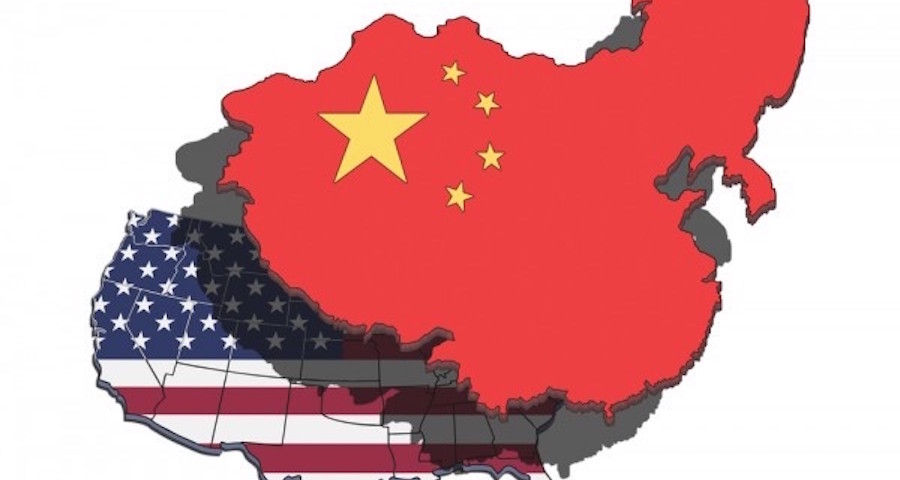 This column seeks to educate and enlighten its readership regarding business and economic issues. But these matters operate against the backdrop of the global power dynamics. Since the great recession of 2008, there has been a shift. This shift has been ongoing for the past generation, apparently unknown to most of the region’s population. What I speak about is the fact that the West, which has been basically running the world for the past three centuries, is now giving way to the rise of China.
This column seeks to educate and enlighten its readership regarding business and economic issues. But these matters operate against the backdrop of the global power dynamics. Since the great recession of 2008, there has been a shift. This shift has been ongoing for the past generation, apparently unknown to most of the region’s population. What I speak about is the fact that the West, which has been basically running the world for the past three centuries, is now giving way to the rise of China.
A bit of history is required at this point. At the time of the Middle Ages in Europe, China was way ahead of the rest of the world. So much so, that they were able to send a fleet to circumnavigate the globe in the 15th Century, I believe. There are descendants of these Chinese explorers existing in east Africa. Anyone can google this aspect of Chinese history and if you have a fire stick, you can access the episode on National Geographic. The fact is, at that point, China was a global superpower that had steel furnaces, invented the rudder and the compass, I believe, and they also created gunpowder.
After this period of naval exploration, China turned inward. The West, as its industrial revolution expanded, wanted to trade with China which was a vast and varied market for the western goods. But the Chinese, who saw what the Europeans did in India and Afghanistan, closely controlled this trade. They purchased few western products.
However, in 1820, the Chinese discovered a product they were willing to buy; it was opium. This was sold to them by the British who obtained it from Afghanistan. This drug wrecked the Chinese economy and society. The West had a significant trade deficit with China in its early dealings; the opium trade reversed that position. As a result, the Chinese paid for opium with silver. However, they gradually ran out of this resource and traded land in exchange, and this is how the British got control of Hong Kong which they only ceded back to China in 1997.
To make a long story short, China learned from opening itself to trade with the West, despite the humiliation it suffered. The Europeans tried their best to put an end to China in the late 19th Century by trying to carve it up amongst themselves and a nascent Japan; Vietnam was taken by French; Hong Kong given to the British; the Korean peninsula was given to Japan, and Mongolia to Russia.
To their credit, the Chinese resisted this assault on their territorial integrity. They experimented with western political ideas and technology, learned western methods of production and accepted Marxism as the means by which they would rescue themselves from western imperialism. After two world wars and a Chinese civil war, China was able to consolidate its territorial integrity and went to war with the West in the Korean Peninsula to prevent any further threat to its territory.
Sometime in the 1970s, the Chinese leadership realized that they had to do something about modernizing China. They realized that a Marxist, centrally planned economy was not generating returns required to modernize its economy and lift its people out of poverty. The Chinese then adopted western capitalist means of production to modernize its economy. This experiment, thus far, has been a spectacular success.
China is now a world economic power in its own right, with a gross domestic product (GDP) second only to the United States. It has expanded its economic footprint across the globe, providing economic assistance to countries in the African and Asian continents. Its companies are serious players in the global market and the world financial markets. China is said to possibly control significant amounts of the US debt – a direct result of the massive trade deficits the US has had with China over the past two decades. Over the last generation, most of the world’s manufacturing operations shifted to mainland China. A significant portion of US technology company Apple’s manufacturing capacity is located in China.
China’s vast internal market has proved all but impossible for global multinationals to resist. In exchange for access to the Chinese market, companies, particularly those in manufacturing and software engineering, have had to share their intellectual property with China in order to access this market. China has also exacted a price for its economic assistance, according to reports of those critical of its growing influence. Critics of these actions raise the issue concerning the recipient countries which have compromised their principles in exchange for Chinese economic and developmental assistance. However, the question is, is this behaviour any different from any global power in the past? It is well known that all economic developmental assistance comes with strings attached.
China’s growing influence has led to friction with the US. Since the collapse of the Soviet Union and the end of the Cold War, the US has operated unrivalled as the only global military superpower. China has ambitions of challenging this position. China has challenged the freedom of shipping in the South China Sea by constructing artificial islands with military installations. It appears that China is investing heavily in modernizing its armed forces. China has continually challenged the US support and defence of the Island of Formosa, which the Chinese considers a renegade province. China has also invested considerable resources into its space programme, placed its satellites in orbit and continues to invest heavily in high technology and alternative energy.
The direction the world may go in, because of the rivalry between the US and China for global dominance, remains uncertain. However, if we examine the lessons of history, we see that wherever two major powers have clashed, for example, in ancient history – Rome and Carthage; in the Middle Ages – the Sassanid empire and Byzantium; and in the modern era – Britain and Germany at the turn of the 19th and 20th Century, these clashes all changed the course of world history.
Edward Hunte, an Attorney-at-Law, is the holder of an MBA with concentrations in Economics & Finance. He was also an economist with the Ministry of Finance and Economic Affairs.




